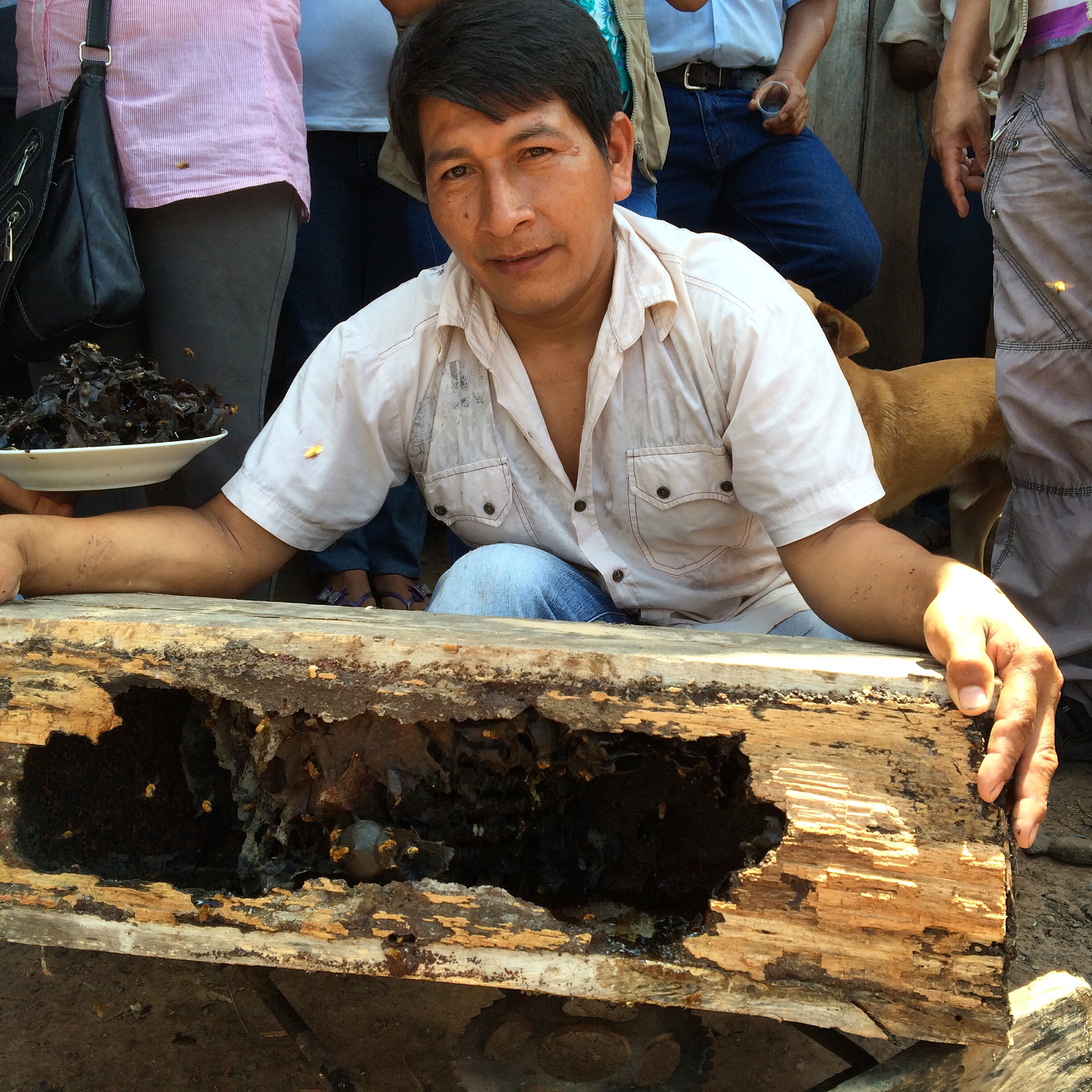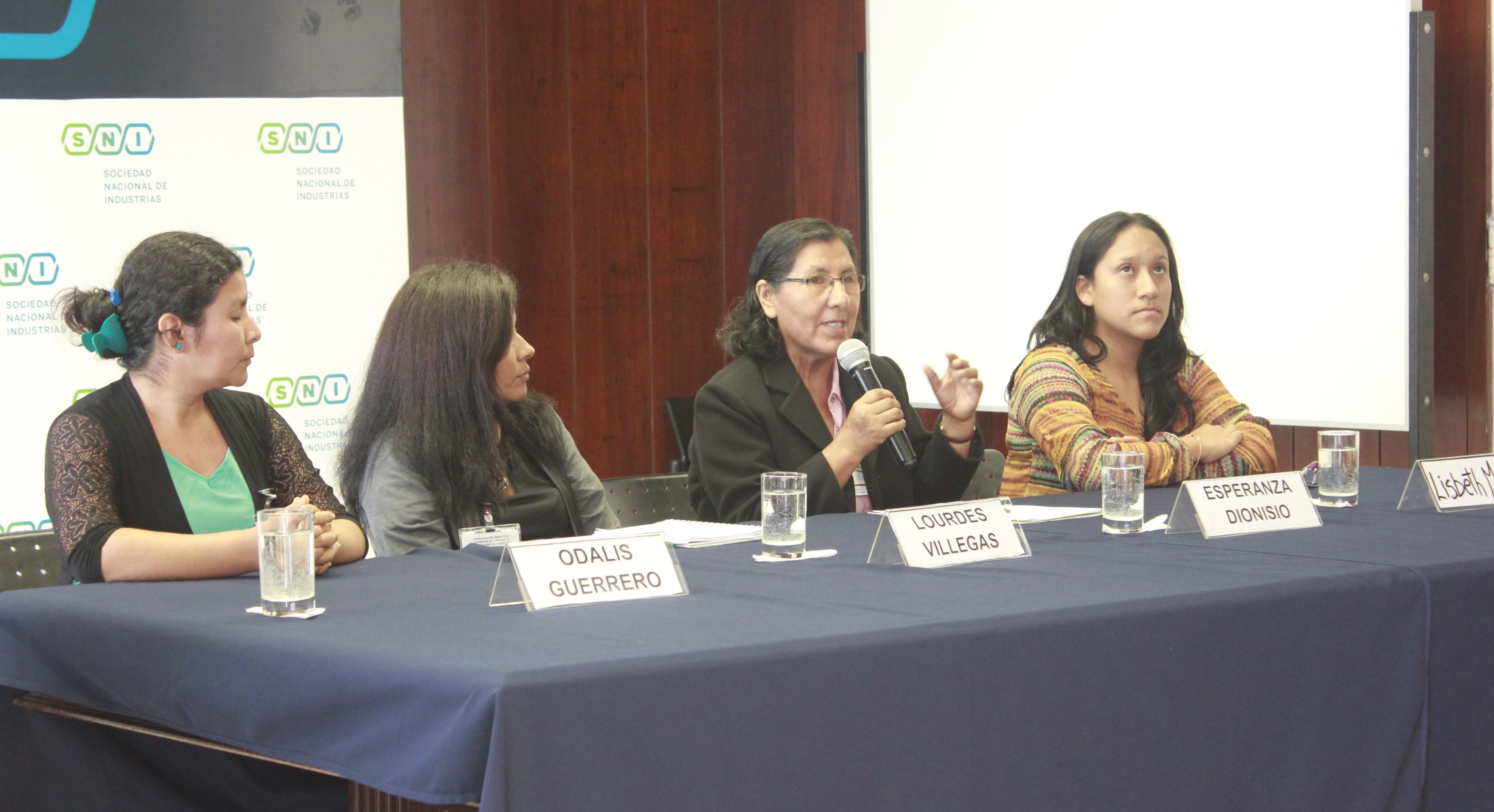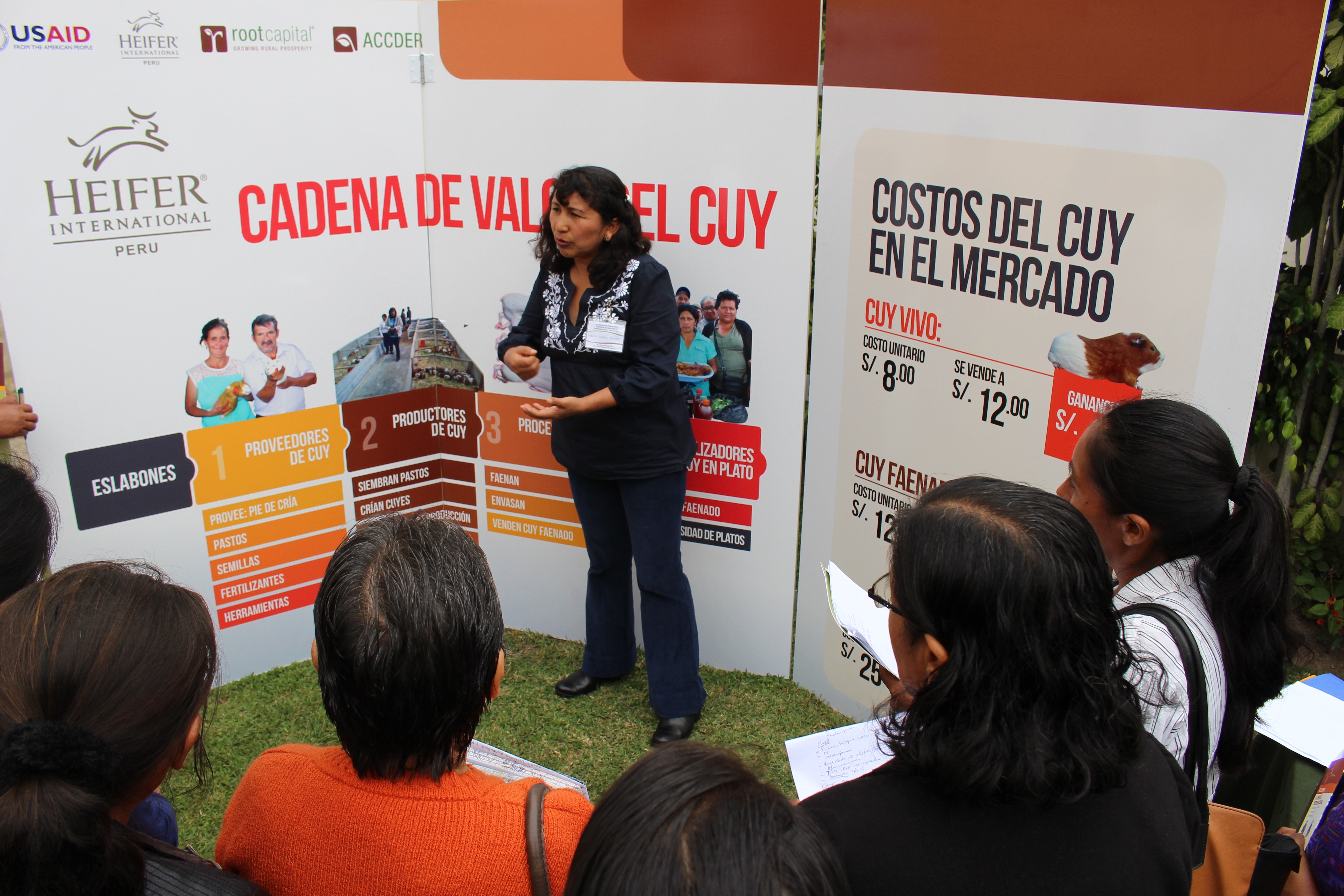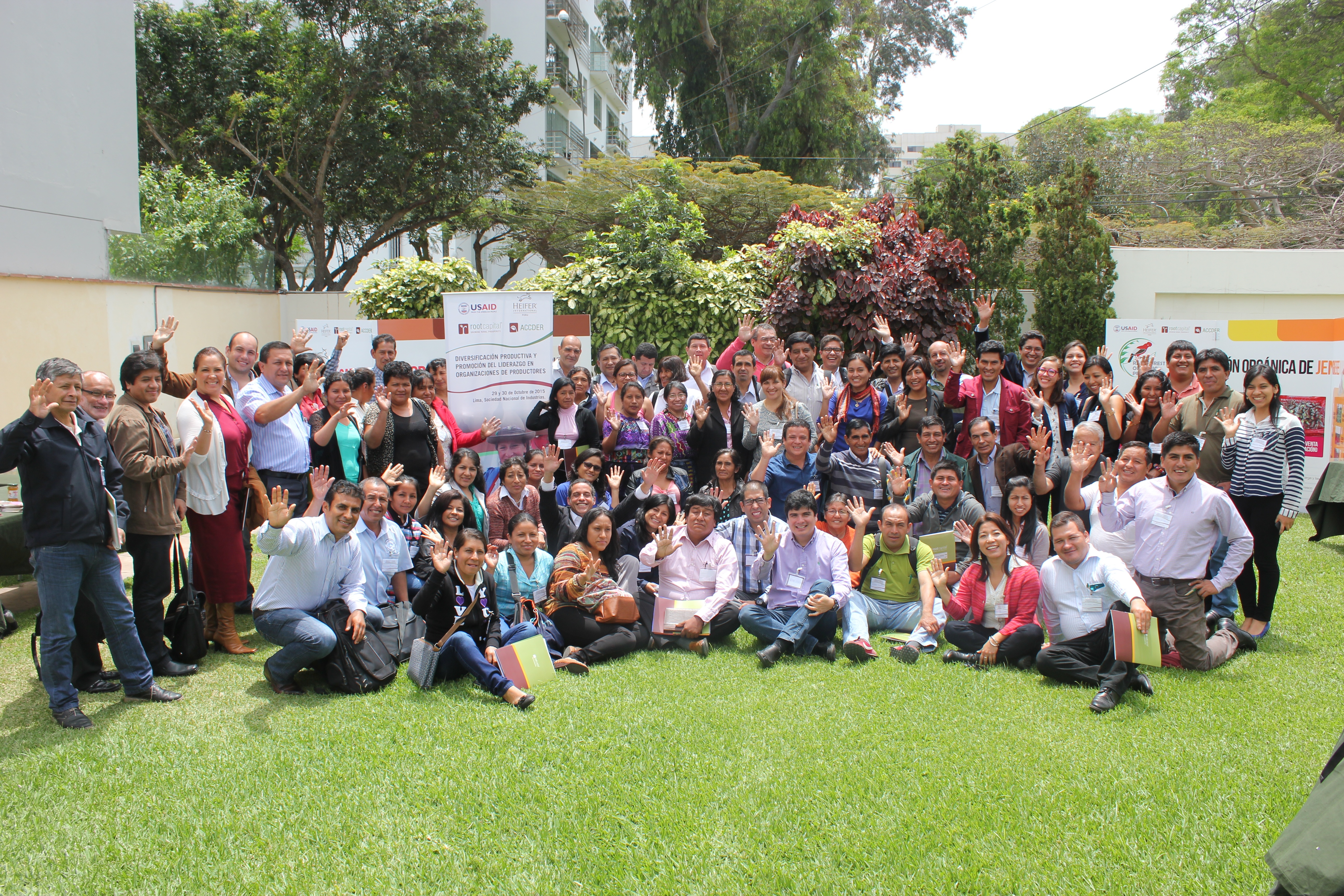
Members of Root Capital client CAPEMA, a small coffee cooperative in San Martin, Peru, use beekeeping as an income generating activity.
The coffee leaf rust crisis that swept through Latin America from 2011 to 2014 forced many coffee-farming families to find alternative sources of income just to make ends meet.
To address this critical need, Root Capital began working with our clients two years ago to explore income diversification opportunities for rural families. Recently, in Lima, Peru, Root Capital and Heifer Peru convened a workshop for representatives from over 40 of these farmer organizations to exchange their experiences with a variety of non-coffee ventures and discuss successful business models for revenue diversification.
Here’s what we learned from our clients about how diversification strategies are impacting farmers and communities across Peru:
These ventures are leading women, men, families and communities to overcome economic challenges and cultural stigmas.
Regardless of which product or market was being addressed, one message underlined all discussions: Diversification into new markets not only affects household income, but it also has been an equalizing force with a profound impact on self-esteem – especially for women.
Lourdes Villegas of CAPEMA, a small coffee cooperative that sources from 300 coffee growers in the San Martin region of Peru, explained that it used to be considered humiliating for a man to be seen carrying grass to feed the cuy. Raising cuys, she said, was considered women’s work and cuys were kept in a corner of the kitchen or patio, for occasional consumption. Now cuys — increasingly raised in stalls, and sold for a profit of at least $1 each — have become an important source of income, and more men happily contribute, even if it means carrying grass.
Diversifying into new markets has contributed to changing attitudes about agriculture and conservation practices.
Participants told the stories of how daughters and sons of coffee producers in Peru’s Pangoa district have discovered the profitability of renting out beehives to avocado and maize farmers for pollination services. In this way, beekeeping, participants discussed, has the potential to keep younger generations interested in agricultural activities.
In communities where beekeeping is a popular diversification measure, forest conservation has also become increasingly important. Bees depend on an abundance of flowering trees and plants, and therefore beekeepers have been keen to promote agroforestry and avoid slash-and-burn practices.
Don’t trade short-term gain for long-term suffering.
In times of crisis, the appeal of short-term gains is easy to understand. That’s why, when the coffee leaf rust outbreak was at its worst, some clients began exploring ginger production.
Ginger has a short growing cycle and is immediately profitable – however, often only for one cycle. Ginger production can strip the land of key nutrients, taking otherwise healthy land out of production. Investing in sustainable practices is critical in all crops, especially in the context of helping farmers guard against mortgaging their future.
Launching successful new ventures requires perseverance and hard work.
One workshop participant told the story about a group of women who wanted to supplement their incomes by raising fish to make and sell a traditional dish called patarashca.
The first hurdle these women encountered was financial; they had the idea, but not the capital. Once they received funds from their cooperative to start a fish farming business, they faced another challenge: learning the technology and methods needed to successfully run the fish farming operation.
Undeterred, the women persevered, and now, as they serve dishes of patarashca to eager consumers, they proudly say, “We did learn. We are doing this. We did learn a new technology. And we are generating new income.”
Below are a couple of photographs from the event, courtesy of Heifer Peru’s photographer, Carolina Dos Santos:

A panel of women leaders from coffee businesses we finance in Peru.

Presenting on the value of income diversification.

A group shot of all participants in the workshop.

What do you think?